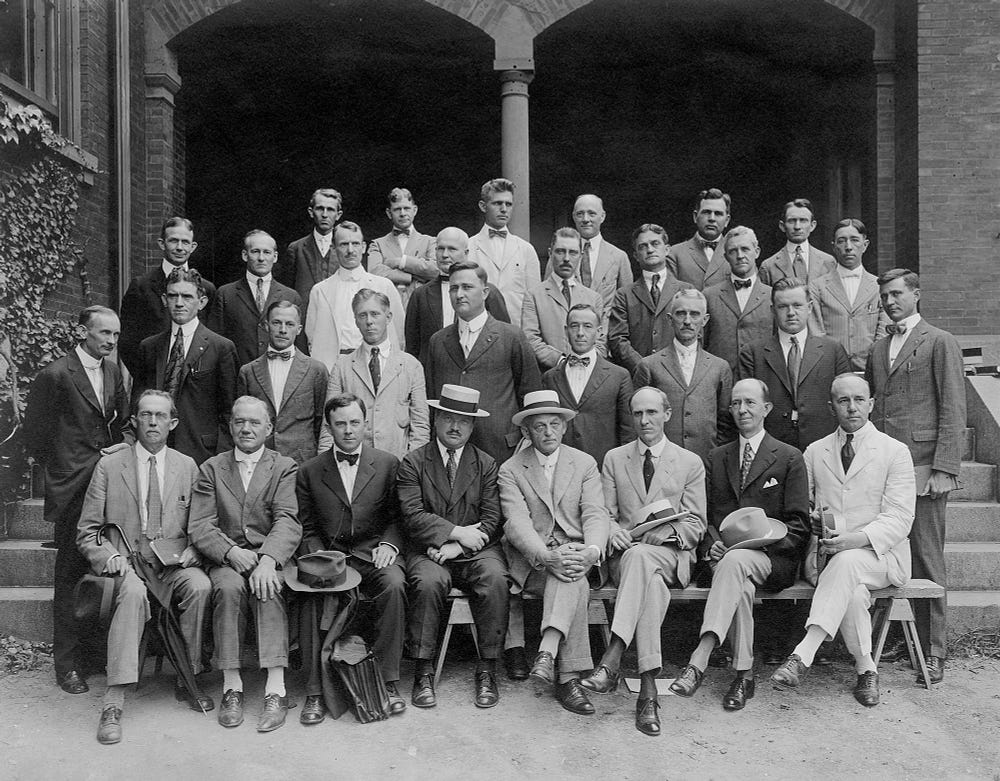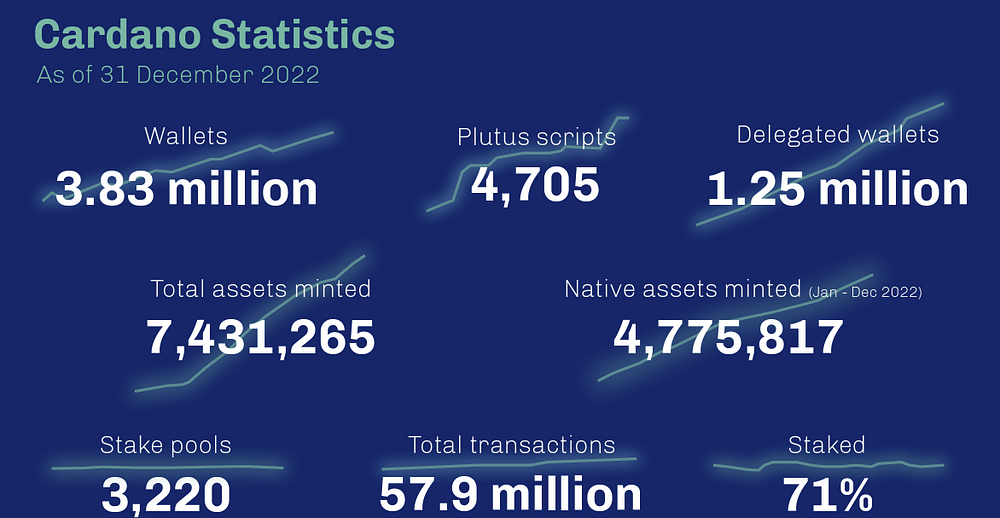In Blockchain, the promise of decentralization and the vision of a more equitable global financial system are driving the rapid evolution of this technology. Among the many players in this burgeoning field, Cardano stands out for its unique approach and commitment to developing a blockchain platform that is secure, scalable, and sustainable.
Central to these efforts is the Cardano Foundation, a key player in the Cardano ecosystem. But what is a foundation in the context of a cryptocurrency? Why does Cardano need a foundation? And what does the Cardano Foundation do? Let’s dive into these questions to gain a better understanding of these vital aspects of the Cardano project.
What is a foundation?

A foundation is a legal entity set up to fund, oversee, or distribute resources for a specific purpose, often of a charitable, educational, or social nature. Foundations exist to contribute to the public good by supporting causes that align with their mission and by providing funding or other resources to organizations or individuals working in those areas.
The concept of foundations has deep historical roots. In ancient times, endowments were made to support various causes, such as education in Ancient Greece. However, the modern concept of a charitable foundation as we understand it today was pioneered in the United States in the late 19th and early 20th centuries. The establishment of the Carnegie Corporation by Andrew Carnegie in 1911 and the Rockefeller Foundation by John D. Rockefeller in 1913 were key moments in the development of the modern charitable foundation.
Foundations differ from companies in several ways due to their distinct legal structures and purposes. Here are some key differences:
- Purpose: Foundations are typically established to serve a specific purpose, often related to public good or charity. In contrast, companies are generally formed to engage in business and generate profits for their shareholders.
- Ownership: Foundations do not have owners or shareholders, while companies do. A foundation’s assets are dedicated to the foundation’s charitable purpose and cannot be distributed to individuals.
- Profit and Revenue: Companies aim to generate profits, which can be distributed to shareholders. Foundations, however, do not seek to generate profits for distribution. Any revenue or earnings they generate are reinvested into their charitable activities.
- Taxation: Foundations often enjoy tax-exempt status, meaning they do not pay income tax on money they receive. This is in contrast to for-profit companies, which are typically subject to corporate income tax.
- Regulation and Transparency: Foundations are subject to different regulations compared to companies. These often require a higher level of transparency, as they must regularly report on their activities, financial status, and the use of their funds to maintain their tax-exempt status.
- Governance: Foundations are typically governed by a board of trustees or directors who oversee the foundation’s activities and ensure it is fulfilling its stated purpose.
Why does Cardano need one?
In the world of blockchain, decentralization is paramount. It means that no single entity has control over the entire network. This presents unique challenges, particularly when it comes to governance, development, legal compliance, and public relations. This is where the need for a foundation comes into play.
A blockchain, while decentralized, still requires a coordinated effort to grow, evolve, and adapt to changing technological landscapes and regulatory environments. This is particularly true for a project as ambitious as Cardano, which aims to provide a more secure, scalable, and sustainable platform for the development and execution of smart contracts, the basis for building decentralized applications (dApps).
Governance and Development
A foundation provides a measure of governance and facilitates development. In a decentralized system, decisions about future development paths, changes to the protocol, and management of shared resources need to be made collectively. A foundation serves as a coordinator and mediator for these complex processes, ensuring that decisions reflect the interests of the community.
In terms of development, blockchain technology is rapidly evolving and highly complex. A foundation can help manage the research and development necessary to keep the blockchain competitive. It can also oversee the implementation of upgrades and new features, ensuring they are carried out securely and efficiently.
Legal Compliance and Advocacy
A foundation can also navigate the intricate legal landscape that surrounds blockchain technology. It can engage with regulators and policymakers, advocating for the technology and working towards favourable legal frameworks. This is crucial in a time where regulatory attitudes towards blockchain and cryptocurrencies vary greatly around the world.
Community Engagement and Education
Finally, a foundation plays a key role in fostering a strong and engaged community. It can organize events, promote education, and facilitate communication between different stakeholders. A foundation can also engage in public relations, promoting the blockchain to potential users and the wider public.
In essence, while the blockchain technology underlying Cardano is decentralized, the challenges of development, governance, legal compliance, and community engagement are inherently collaborative and complex. They require a degree of coordination and management that a foundation is uniquely equipped to provide.

What does the CF do?
The Cardano Foundation, as its core mandate, focuses on establishing and maintaining the operational resilience of the Cardano blockchain, ensuring its continuance as a robust, reliable, and potentially game-changing technology. By emphasizing the importance of understanding blockchain, the foundation engages in extensive educational initiatives and research aimed at enhancing the general knowledge of what blockchain is, its potential applications, and its limitations. Through these initiatives, the foundation not only produces informative content and consults with enterprises and regulators but also supports research into this revolutionary technology.
Let’s break it down into three main focuses.
Operational resilience
Operational resilience refers to the necessary actions taken to ensure that the Cardano blockchain is consistently robust, reliable, and capable of meeting the demands of its users.
Here are some of the main aspects of operational resilience
- Maintenance and Infrastructure Support: The foundation plays a key role in maintaining the Cardano blockchain. They work on updating the system, rectifying any potential issues, and ensuring it remains a durable and reliable technology. This consistent support guarantees that Cardano can serve as a critical resource for enterprises and institutions.
- Security Measures: The Cardano Foundation is responsible for maintaining the security of the blockchain. They employ various measures, such as the bug bounty program, which encourages the detection and reporting of vulnerabilities in Cardano assets. This proactive approach enhances the overall robustness of the network.
- Implementing Upgrades and Innovations: They oversee the implementation of upgrades and hard forks (major updates) to the Cardano blockchain, such as the Vasil hard fork. These updates are crucial for improving the functionality and features of the network, thus ensuring that it remains competitive and relevant in the fast-paced world of blockchain technology.
- Cardano Improvement Proposals (CIPs): The Foundation also maintains the Cardano Improvement Proposals program, which allows for community-driven contributions to the blockchain’s development. This process provides a platform for developers and other technical members of the community to propose new features and improvements, reinforcing the collective and democratic nature of the blockchain’s evolution.
- Supporting Developers and Users: The Foundation provides resources and support to help individuals and organizations interact with and build upon the Cardano blockchain. An example of this is the Developer Portal, which offers a range of instructional materials and guides, making it easier for people to engage with Cardano’s technical ecosystem.
In summary, the operational resilience of the Cardano Foundation revolves around maintaining and improving the Cardano blockchain’s functionality and security, facilitating upgrades, and supporting community involvement in the development process. These efforts ensure that Cardano remains a reliable, secure, and innovative platform for decentralized applications and financial systems.
Education
Let’s now turn our attention to another crucial element of the Cardano Foundation’s work — education. In the intricate and multifaceted landscape of blockchain technology, clarity and understanding are paramount. The Cardano Foundation embraces this imperative, dedicating significant resources to not only simplifying complex concepts but ensuring they are accessible to a broad audience. This includes everyone from technology enthusiasts and specialists to the layperson curious about the potential of blockchain.
- Information Sharing and Blockchain Education: The Cardano Foundation emphasizes the importance of providing high-quality information and educational resources about blockchain technology and Cardano specifically. They work to clear misconceptions and offer a realistic understanding of what blockchain technology can and cannot do. This helps individuals, organizations, and enterprises gain a comprehensive understanding of the technology, thus promoting its appropriate and effective use.
- Engaging with Policymakers and Regulators: The Foundation actively engages with policymakers and regulators to provide education on blockchain technology. By sharing their expertise and perspectives, they aim to foster a nuanced and innovation-friendly approach to blockchain regulation.
- Developer Support: Through resources such as the Developer Portal, the foundation offers educational content to help developers understand and effectively utilize the Cardano blockchain. These resources include explanations of blockchain components, technical concepts, and programming libraries.
- Events and Collaborations: The Foundation participates in numerous events where they share insights and knowledge about blockchain and Cardano. This includes collaborations with universities and other educational institutions to advance blockchain research and knowledge dissemination.
- Blockchain Education Course: Recognizing the need for a comprehensive and reliable blockchain education program, the foundation is in the process of developing a course that covers technical foundations, use cases, and practical utility of blockchain technology.
- Sponsoring Research: The Foundation is involved in fostering in-depth research on blockchain technology. An example of this is their partnership with the University of Zurich, where they sponsor a PhD position in Blockchain Analytics.
In essence, the Cardano Foundation’s role in education is to ensure that individuals, organizations, and regulators have a clear and comprehensive understanding of blockchain technology. By sharing information, supporting developers, sponsoring research, and developing educational courses, they aim to foster an environment where blockchain technology can be utilized effectively and responsibly.
Adoption
The final core focus area of the Cardano Foundation is adoption. This is the natural culmination of the foundation’s work in operational resilience and education. It’s one thing to build a robust and well-understood technology, but for the true potential of blockchain to be realized, it needs to be used widely across different sectors and by various entities.
The foundation approaches adoption from multiple angles. It actively supports the development of blockchain-native companies — those whose business models revolve around distributed ledger technology. These businesses range from decentralized finance (DeFi) platforms to companies specializing in non-fungible tokens (NFTs), software development, tracking, and gaming, among others. By nurturing these companies, the foundation helps to create a rich ecosystem of solutions built on the Cardano blockchain.
In addition to fostering the growth of blockchain-native businesses, the Cardano Foundation also aids in the transformation of legacy systems. This entails working closely with traditional businesses and institutions, helping them understand the benefits of adopting blockchain technology, and providing them with the tools and support needed to make the transition. This is particularly important as it helps expand the reach of blockchain to sectors that may not have considered its application before.
The foundation is also aware of the need for continuous improvement and innovation. For this reason, it encourages the development and sharing of open-source solutions that can benefit the entire Cardano ecosystem. By doing so, it not only enhances the existing technology but also creates opportunities for future growth and evolution.
Furthermore, the foundation seeks to foster adoption through strategic partnerships. These alliances are forged with various organizations, government agencies, and leading universities, aiming to integrate Cardano into a wide array of projects and initiatives. Some examples include collaborations with UNHCR in Switzerland, the Georgia National Wine Agency, verities, and the University of Zurich.










